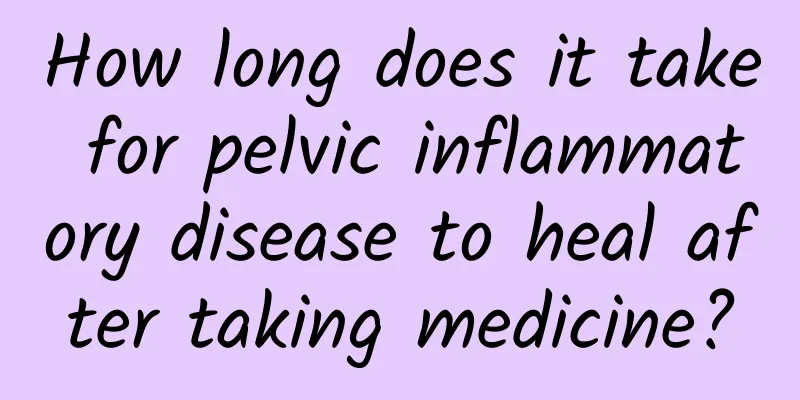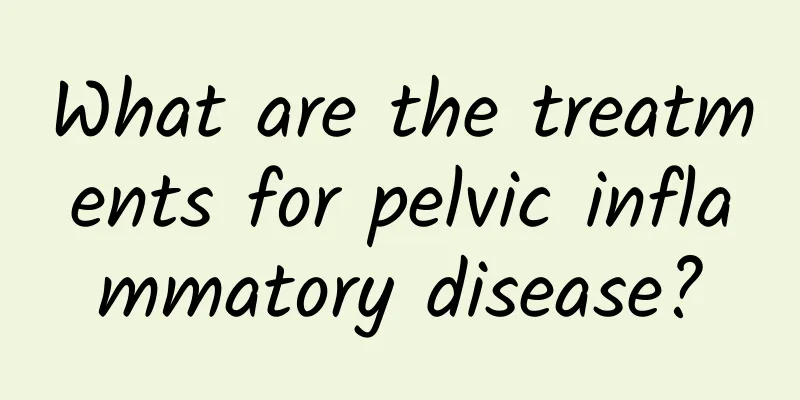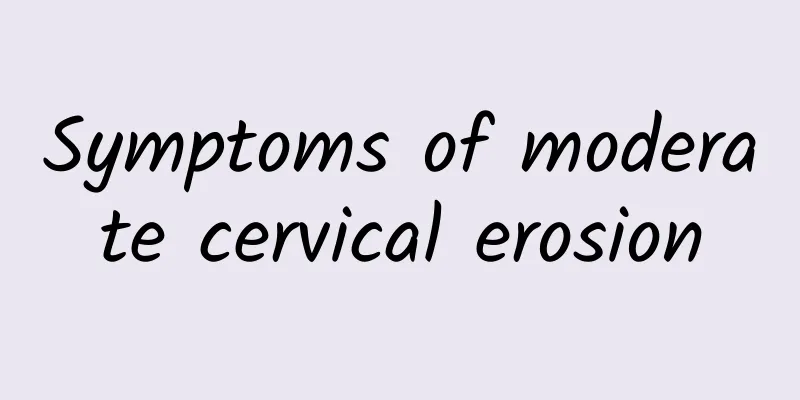How long does it take for pelvic inflammatory disease to heal after taking medicine?

|
How long does it take for pelvic inflammatory disease to heal after taking medicine? This depends on the severity of the disease and individual differences. Acute pelvic inflammatory disease usually takes a week, while chronic pelvic inflammatory disease may take weeks or even months. 1. Treatment of acute pelvic inflammatory disease Common symptoms of acute pelvic inflammatory disease include increased vaginal discharge and lower abdominal pain, especially during menstruation, which may cause increased menstrual bleeding and prolonged menstruation. Doctors usually recommend antibiotics for treatment, such as amoxicillin or cephalexin. In most cases, symptoms will improve significantly after one week of medication. During treatment, you must strictly follow the doctor's instructions and avoid stopping the medication on your own to prevent recurrence of the disease. 2. Treatment of chronic pelvic inflammatory disease The treatment of chronic pelvic inflammatory disease takes a long time, which may take two weeks to three months or even longer. The treatment method is not limited to medication, but may also include comprehensive means such as physical therapy. In this case, patients need to be patient and maintain close communication with their doctors in order to adjust the treatment plan. Chronic pelvic inflammatory disease may affect the quality of life due to its recurrence, so early intervention and continuous treatment are particularly important. 3. Factors affecting treatment time The treatment time for pelvic inflammatory disease is related to many factors, including the patient's physical condition, immune status, and the severity of the disease. Some patients may be sensitive to certain drugs and recover faster, while others may need longer treatment. Good living habits and diet can also help speed up recovery, such as getting enough rest and eating nutritious foods. 4. Prevention and care recommendations In order to prevent the recurrence of pelvic inflammatory disease, you need to pay attention to personal hygiene in daily life, especially menstrual hygiene. Regular physical examinations can help to detect and deal with problems in time. Avoiding excessive fatigue and stress and maintaining mental health are also important measures to prevent pelvic inflammatory disease. In terms of diet, eat more foods rich in vitamins and minerals to enhance immunity. 5. Communication with doctors During treatment, it is very important to maintain good communication with your doctor. Any discomfort or changes in symptoms should be reported promptly so that the treatment plan can be adjusted. Patients can also ask the doctor for suggestions on lifestyle adjustments to help them better cooperate with treatment. Through these measures, patients can not only better control their condition, but also improve their quality of life. If you have any concerns or symptoms persist, be sure to seek medical attention in a timely manner and get professional guidance and help. |
<<: How much harm does abortion do to women?
>>: Drinking water boiled with basil stems can cause miscarriage
Recommend
Can cervical erosion of degree 2 heal itself? How to treat cervical erosion of degree 2?
Second degree cervical erosion indicates that the...
What tests should be done for irregular menstruation
Irregular menstruation is a common gynecological ...
What are the symptoms of chronic pelvic inflammatory disease
What are the symptoms of chronic pelvic inflammat...
What are the effects of vaginitis on women's bodies?
Vaginitis is a common disease, and most women do ...
Do women know what chronic cervicitis is? How long does it take to treat chronic cervicitis?
Chronic cervicitis has a great impact on women. I...
What are the serious symptoms of premature ovarian failure?
What are the serious symptoms of premature ovaria...
Lose 25 kg in 1 year! Diabetes doctors strongly recommend low-sugar lunch boxes, 5 tips to lose weight
People who are too obese are prone to diabetes, a...
"Chan Chan" never stops! Taiwan imports 1.8 million kilograms of ginseng annually
It is common for some elderly people to use ginse...
What foods are good for cervical erosion? Dietary treatment for cervical erosion in women
Early cervical erosion has basically no effect on...
Doctors recommend 4 treatments for adenomyosis
What is adenomyosis? Adenomyosis is a common gyne...
What can I eat to reduce the size of uterine fibroids? What can I eat to eliminate uterine fibroids?
What can I eat to shrink my uterine fibroids? Wha...
What are the symptoms and phenomena of female cervicitis? Four common abnormal phenomena of female cervicitis
The cervix has a great impact on female friends, ...
Eating fish heads can prevent aging and improve skin health! The heat mine is hidden here...
During the Spring Festival, families reunite and ...
Can I get pregnant if I have cervical erosion of degree 3?
Can you get pregnant if you have cervical erosion...
What to do if you have vulvar itching?
What to do if you have vulvar itching? Vulvar itc...









